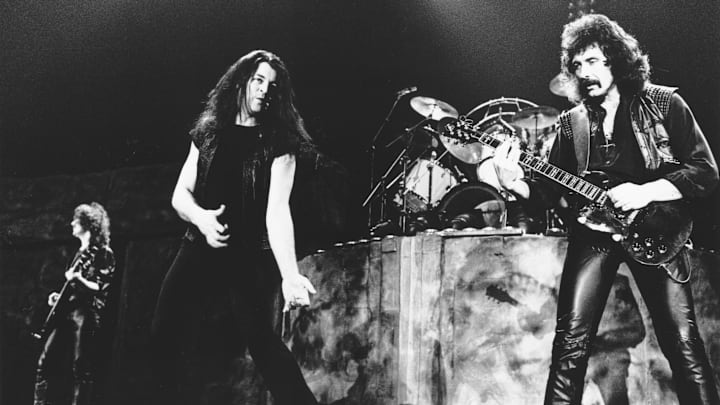“Joy to the World” by Three Dog Night (1971)
If Keith Emerson was ambivalent about “Lucky Man,” two-thirds of Three Dog Night actively disliked “Joy to the World.” You can kind of understand why. The song’s writer, Hoyt Axton, didn’t even like it very much. At least not in the form it was in when Three Dog Night first encountered it. Axton liked his melody and he liked his chorus. But he had no verses. So he wrote nonsense lyrics just to show off that melody.
His first line – “Jeremiah was a bullfrog – Was a good friend of mine” – made no sense at all. Neither did “I’d throw away the cars and the bars and the war – And make sweet love to you” or “I’m a high-life flyer and a rainbow rider – A straight-shootin’ son of a gun.” Axton intended to write real lyrics at some point.
But Chuck Negron – one of the three lead singers who fronted TDN – overruled Danny Hutton and Cory Wells. I bet you can already guess – they needed another song for their album Naturally. They stuck “Joy to the World” on as the final track. TDN already had scored seven top 20 hits, including a chart-topper with their version of Randy Newman’s “Mama Told Me Not to Come.” But nothing prepared them for the success of their silly song about a wine-drinking bullfrog.
It hit number one in April of 1971 and stayed there for six weeks. Billboard named it the top song of the year. Due to its happy-go-luck aura, it became a popular choice for weddings and any other celebration you might have. TDN would release almost a dozen more hits over the next several years, including a third number one (“Black and White”), but they would never have the same monster success of the song that most of the band didn’t even want to record.
“Smoke on the Water” by Deep Purple (1972)
Ritchie Blackmore, lead guitarist during the classic Mark II lineup of proto-metal rockers Deep Purple, made up the most iconic electric guitar riff in rock history as part of a jam while the band was bouncing around Switzerland, recording their sixth album, Machine Head. He credits Beethoven’s Fifth as the inspiration for the 12 notes that everyone who has ever strapped on an electric guitar has played.
The song itself grew out of an experience at the very beginning of their Swiss sojourn, when they were on hand to witness “some stupid with a flare gun” burn down the Montreux Casino during a Frank Zappa show. According to vocalist Ian Gillan, as they watched the smoke billowing across Lake Geneva, bassist Roger Glover jotted down “smoke on the water.”
And guess what? Deep Purple needed one more song to fill out their album. They had been jamming to Blackmore’s inescapable guitar riff during the recording, so it wasn’t too hard to write a few more words about the fire itself and develop a complete song. Unlike some of the earlier songs discussed, the band liked “Smoke on the Water.” They just had no idea how much other people would like it too. It became their only certified Gold Record, rising as high as number 4 on the USA Billboard chart and helping Machine Head become a top ten album all across the planet.
Continued on next slide...
